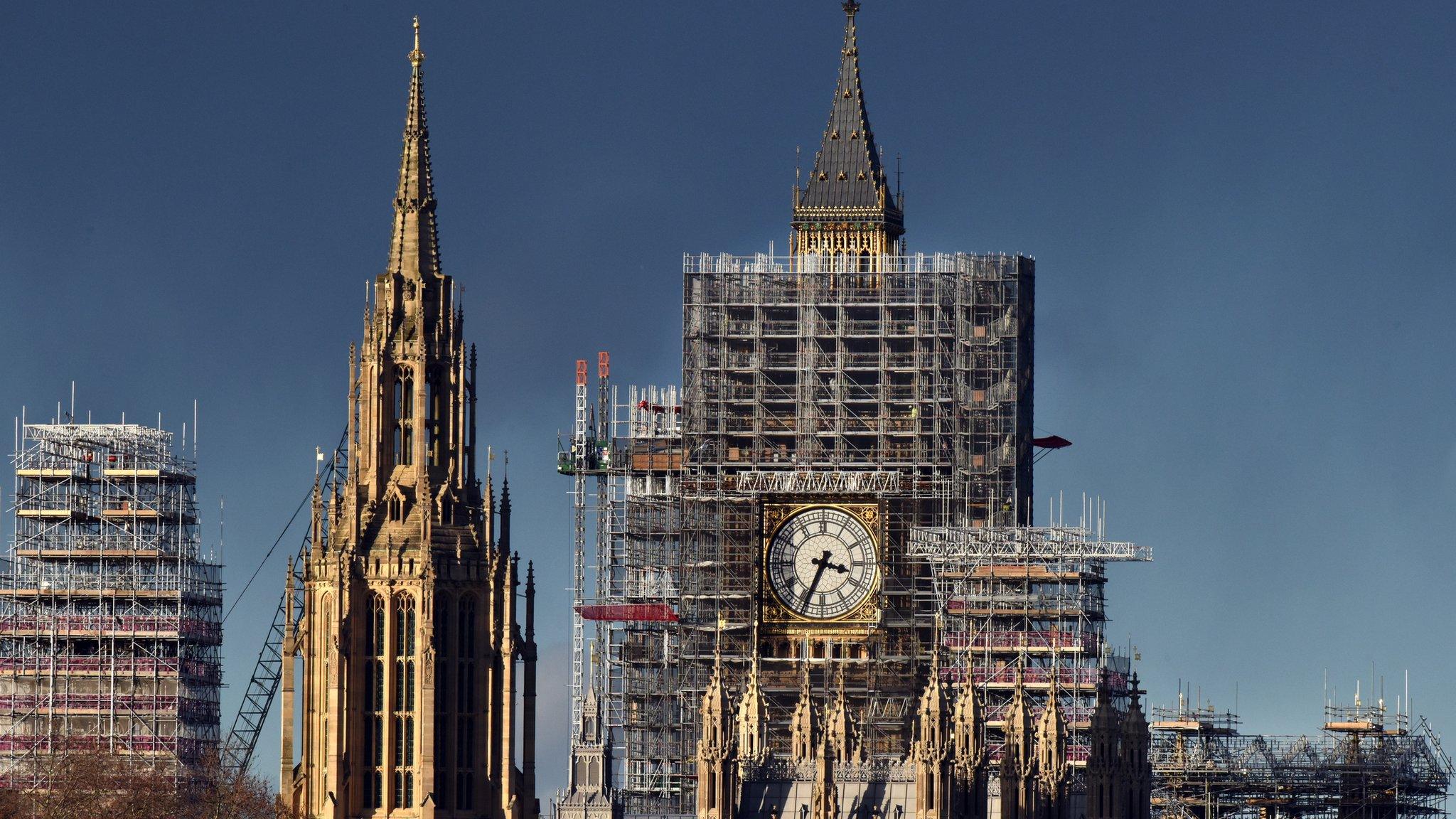Supreme Court: Assembly 'impeded' by PM suspending Parliament
- Published
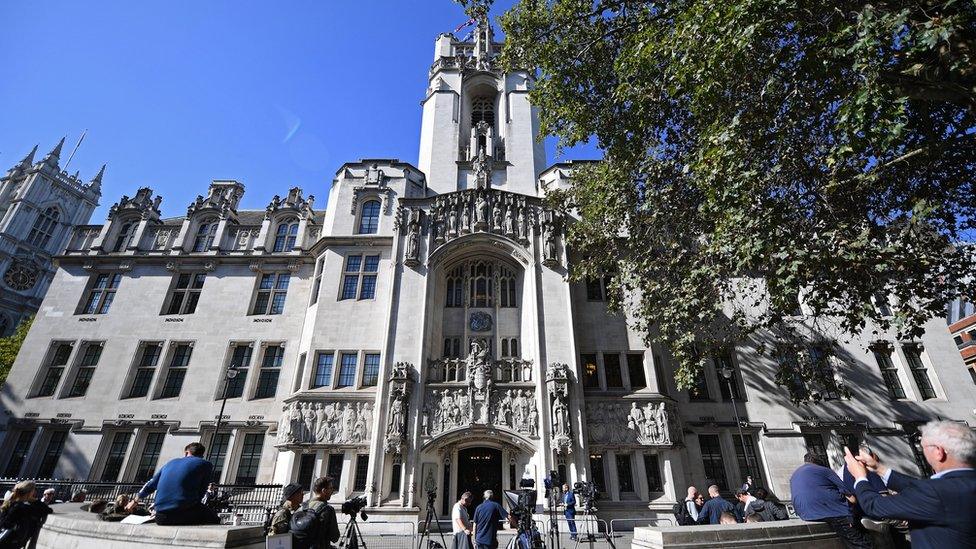
The three-day Supreme Court hearing is due to end later on Thursday
Parliament's five-week suspension has impeded the assembly's dialogue with it at a critical time, Welsh Government lawyers have told the Supreme Court.
Michael Fordham QC made the argument in a written submission to the hearing on whether the suspension was legal.
"This dialogue has never been more important than now, as the UK considers whether and how it is to the leave the EU," he said in the document.
The UK government says the suspension is not a matter for the courts.
Prime Minister Boris Johnson suspended, or prorogued, Parliament earlier this month for five weeks, a decision challenged both in the English and Welsh courts and under Scotland's legal system.
The High Court for England and Wales rejected a challenge led by businesswoman and campaigner Gina Miller and supported by the Welsh Government.
But the Scottish Court of Session ruled Mr Johnson's decision was unlawful and the eleven Supreme Court justices heard challenges to both these rulings.
The UK government's lawyers argued the issue is a political matter - not a matter for the courts - and the prime minister was entitled to prorogue Parliament.
Lawyers opposing the move told the Supreme Court it undermined Parliamentary sovereignty and was intended to stop MPs scrutinising his Brexit policy.
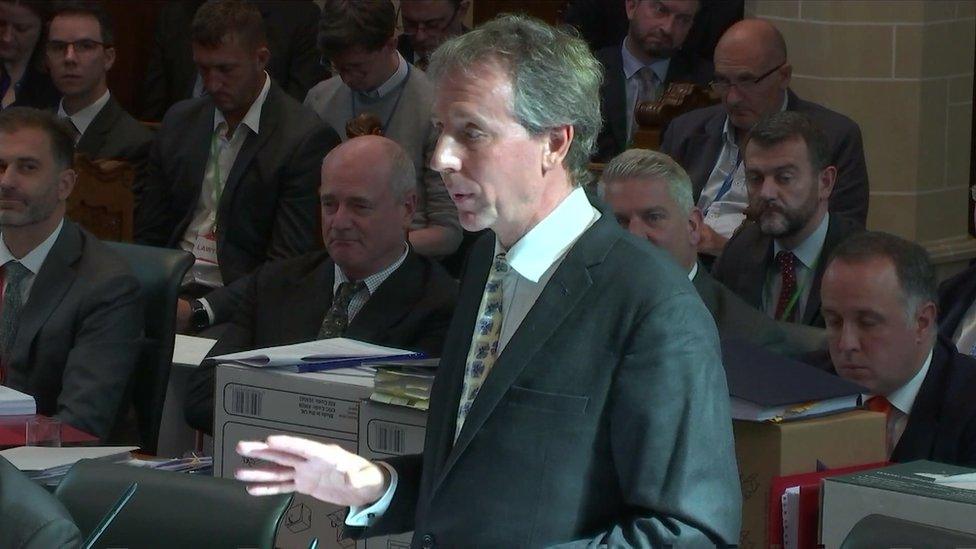
Michael Fordham addressing the Supreme Court judges on Thursday
Mr Fordham, who addressed the justices on Thursday, said in his 15-page submission the suspension was affecting the assembly's ability to do its job.
"The National Assembly has been active in its communications with Westminster, providing legislative consent motions [permission for the UK Parliament to act on its behalf] to numerous statutes enacted by Parliament in devolved areas," he said.
"The lengthy prorogation resulting from the prime minister's actions precludes any further dialogue of this kind."
Mr Fordham argued that major bills affecting Wales, covering trade, agriculture and fisheries had now fallen away because Parliament had been suspended, and that proper scrutiny had been curtailed.
He said Mr Johnson had "purposely impeded the constitutional principle of Parliamentary sovereignty".
The hearing ended on Thursday afternoon and Supreme Court President Lady Hale said the justices hoped to announce their decision early next week.
- Published19 September 2019
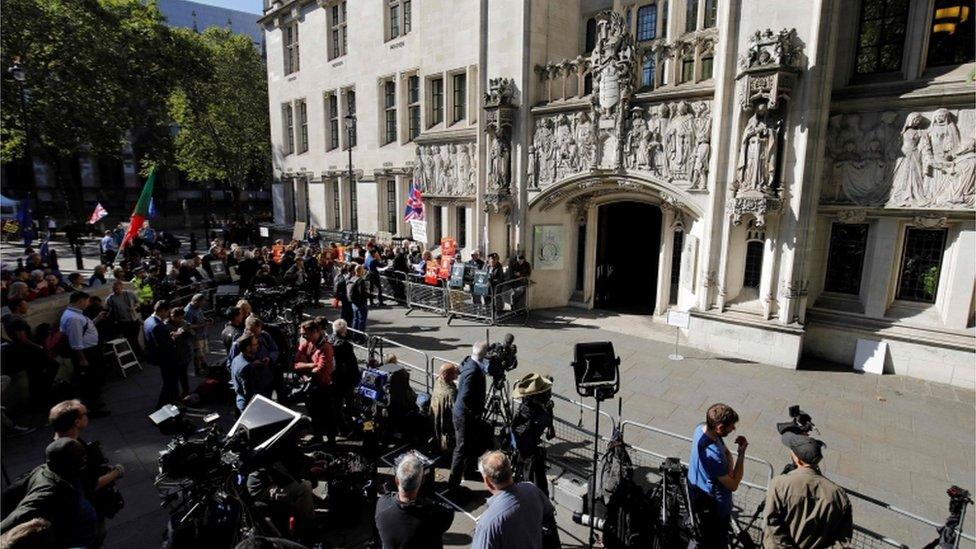
- Published18 September 2019
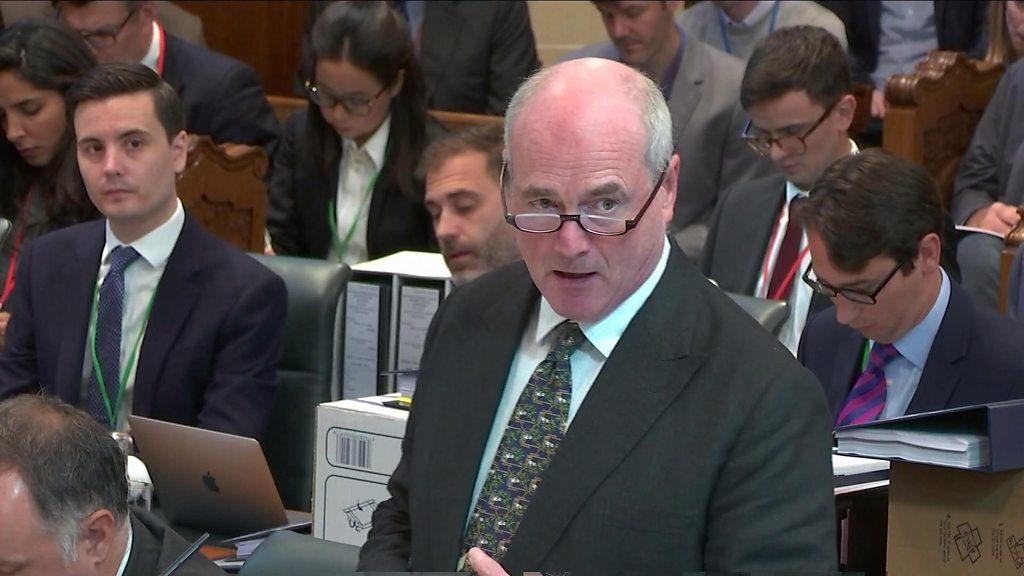
- Published18 September 2019
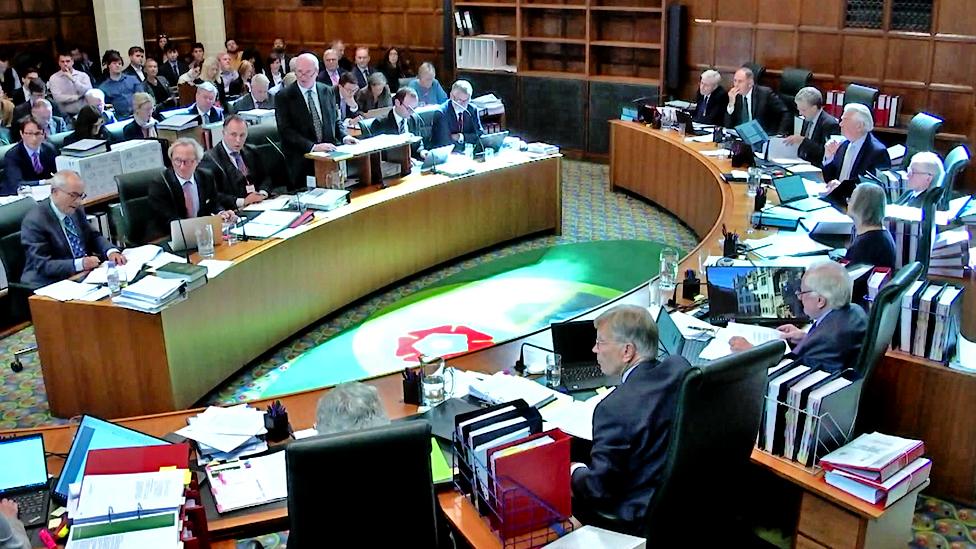
- Published8 October 2019
